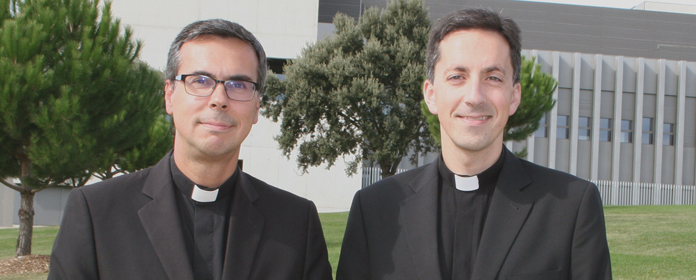The University conducts research on science and religion in Spanish schools thanks to a grant from the John Templeton Foundation
Experts will analyze the accounts given in science classes and their compatibility with a theistic and religious worldview

FOTO: Isabel Solana
Researchers from the Science, Reason and Faith Research Group (CRYF) and the Institute for Culture and Society (ICS) at the University of Navarra will develop a project on science and religion in Spanish schools with funding from the John Templeton Foundation until May 2021.
Each of the three academic years that the initiative covers will study one theme as follows: The origin of the universe and creation (2018-2019), evolution and divine action in the world (2019-2020) and the origin and specificity of man (2020-2021). Likewise, the project will sponsor two editions of the Education, Science and Religion essay contest, which will reward students who prepare the best essays on related issues.
The project’s Principle Investigators are Javier Sánchez Cañizares, director of the Science, Reason and Faith Research Group (CRYF) and researcher at the Institute for Culture and Society, and Rubén Herce, CRYF research member and professor within the School of Ecclesiastical Philosophy. Two other CRYF members are also part of the team, namely Santiago Collado, from the School of Ecclesiastical Philosophy, and Antonio Pardo, from the Humanities and Medical Ethics Unit (School of Medicine).
"We intend to analyze the accounts given in science classrooms at Spanish schools and their compatibility with a theistic and religious worldview," Javier Sánchez Cañizares notes.
According to the expert, who holds two PhDs in Physics and Theology, "while the relationships between science and religion are increasingly present in the Spanish-speaking academic world, the issue does not seem to have been sufficiently addressed in recent years at the high school level, when many students form basic intellectual approaches to big questions about the universe, life and human beings."
The project has three specific objectives. The first is to draw up a map of the main narratives that teachers and students use in science-related subjects and their relationship with God and religion. The second is to create a permanent clustergroup of professors who periodically address the fundamental pedagogical problems that arise when presenting a vision of the world where science and faith are complementary. And the third is to prepare specific materials for science and religion courses in Spanish that can be included in the high school curriculum.
More information about the project can be found in the links below:
